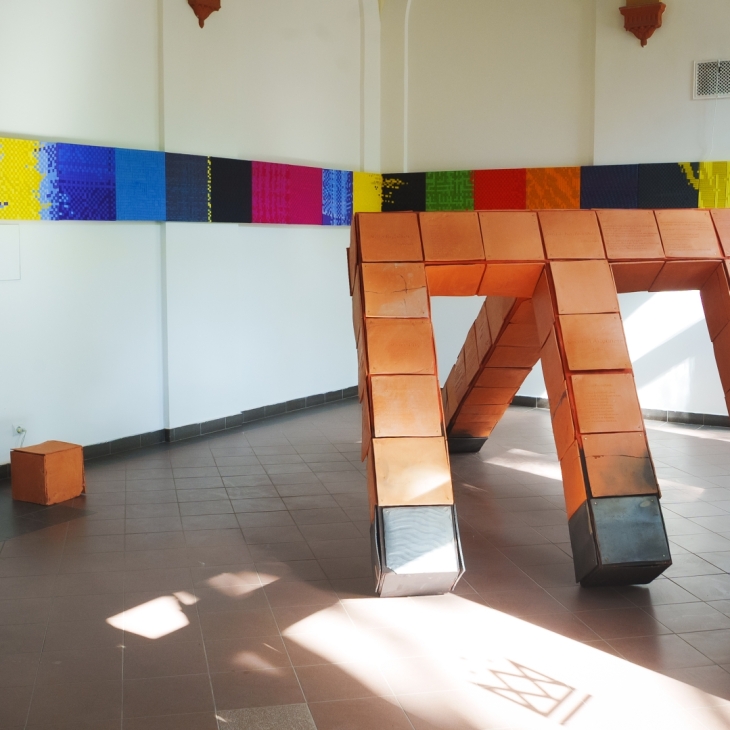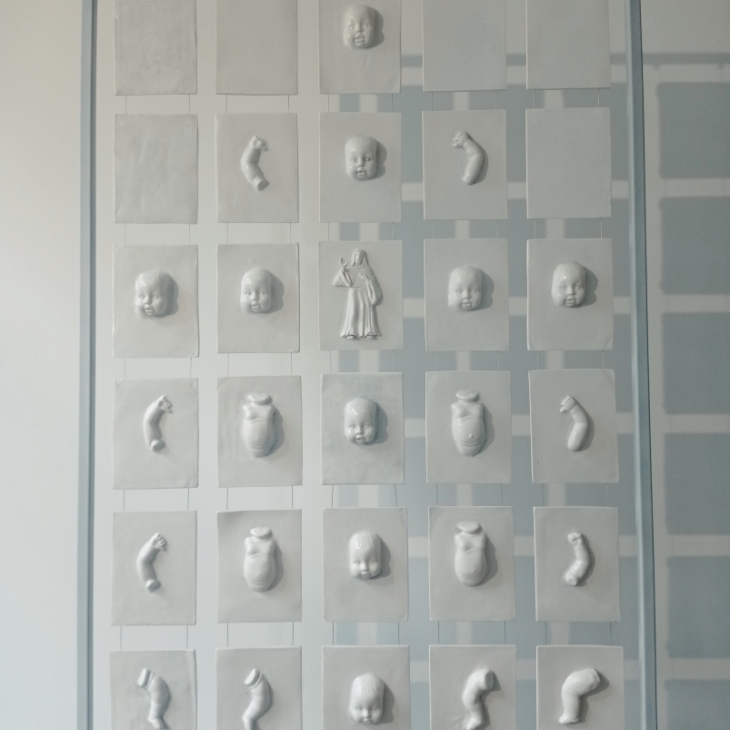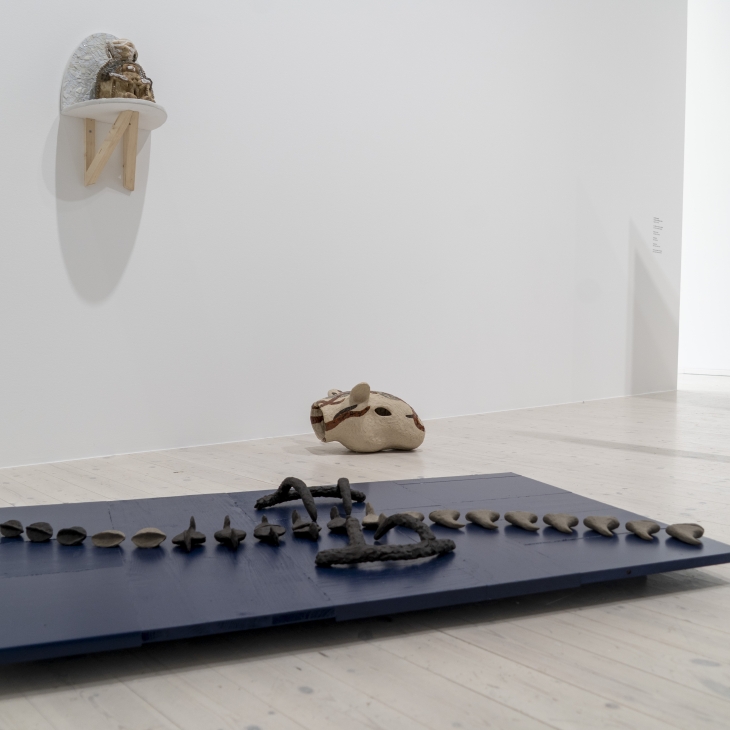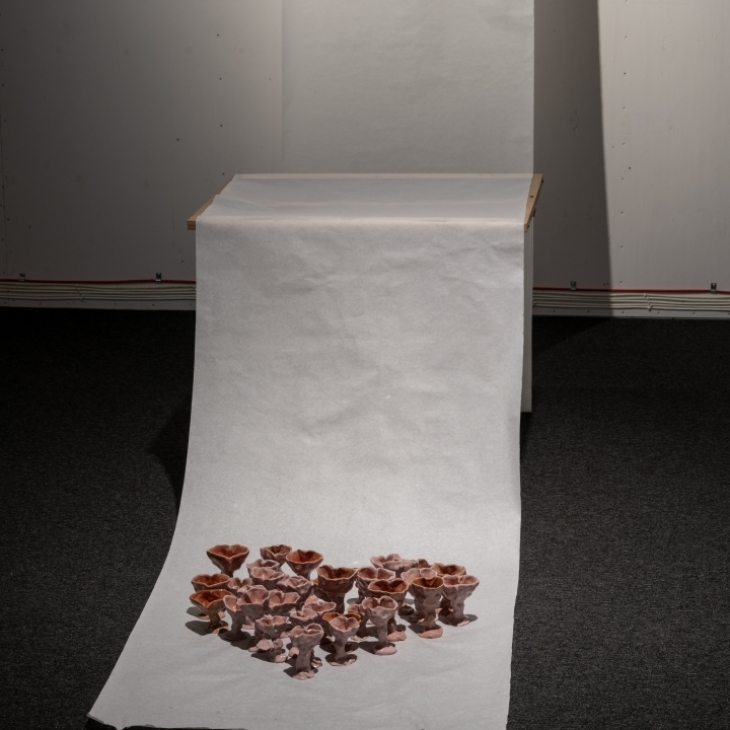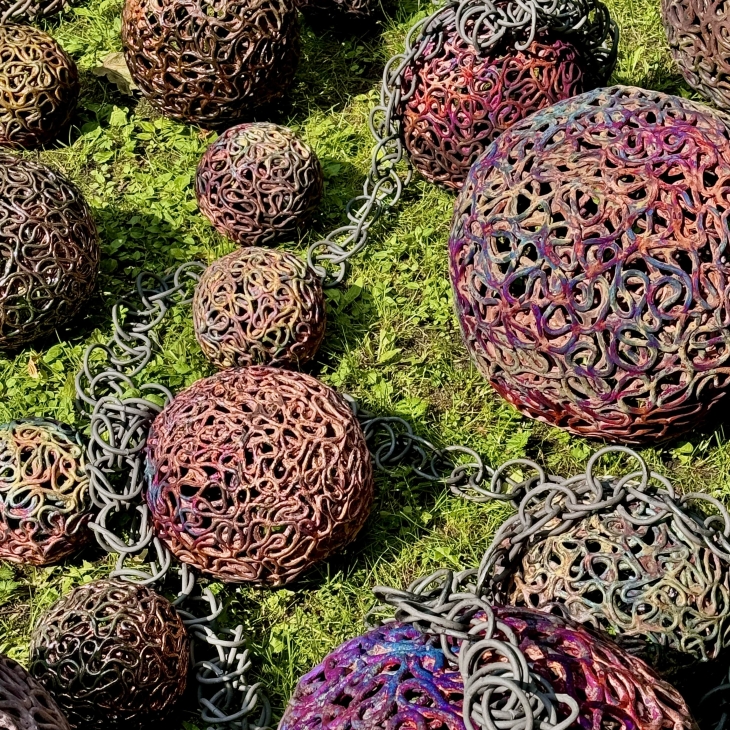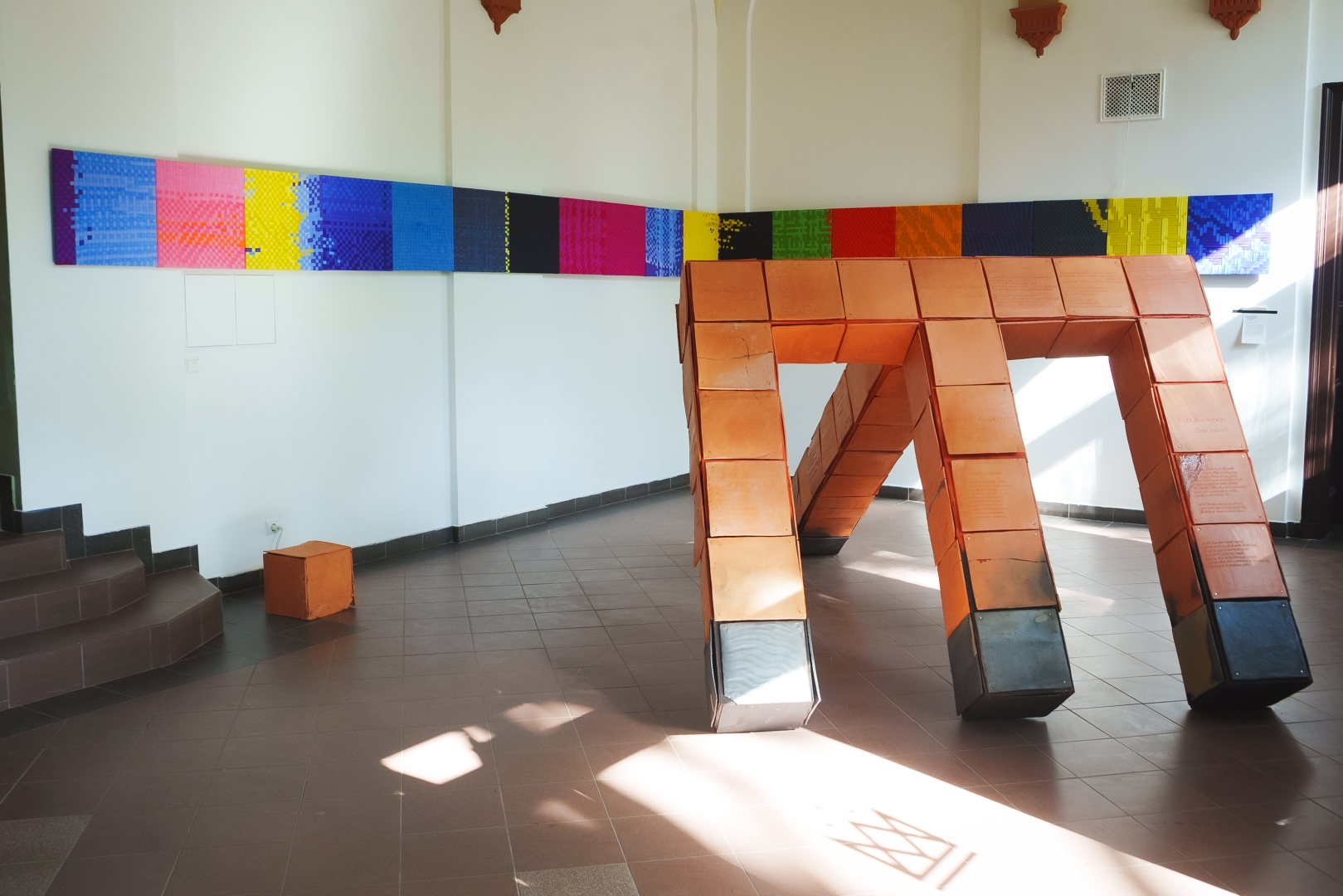Anthology of Eastern European poetry, 2023
ceramics, wood structure
The aim of Rita Pranča’s object is to combine ceramic art and text – poetry. The work is inspired by the concepts created by a multilingual modern generation of poets from several Eastern European countries, thus actualizing the impressive trend of political processes and the diversity of means of expression. The result is a three-dimensional ceramic object. The author convincingly proved the suitability of the ceramic medium for the language of conceptual art, creating an object whose content message is equivalent to the formal scale and theoretically based symbolic form. Moreover, the created object in a universal way actualizes the reflections of the Eastern European cultural space on the recent geopolitical upheavals. The work is based on the synthesis of text and plastic object. The author tries to talk about current political and cultural processes in the Eastern European space in a visually plastic way. The medium and material chosen is archaic – traditional red clay. But the form of the art object – abstract, minimalist – is recorded in today’s art discourse. The object is designed as a large-format installation in a room that allows viewers to physically feel its presence by walking around it from all sides. The natural material – clay, encourages the audience to also use touch, touching clay tiles with texts, to feel its natural warmth, thus expanding the possibilities of perception. The sound track of voices of of poets accomplyes the instalaltion. Each of the details of the artwork created by the author plays a certain important role in the overall message of the work, – unglazed red clay tablets with texts personify the essence of the timeless archetypal memory of plain or cuneiform, cracks, bends and broken parts testify to the historical traumas caused by various contexts and paradigm shifts in the peoples of Eastern Europe from From Hitler to Putin, the metaphor of the rake tells about the culture and work ethic cultivated by our people over the centuries, but its monumental size about the ability to withstand and overcome the fluctuations and shocks of the ages. The texts of authors and poets of various Eastern European nations are scratched on the clay tiles, reflecting the current issues of their identities: Volha Hapeyeva, Belarus; Tadeusz Dąbrowski, Poland; Ostap Slyvynsky, Ukraine; Orsolya Kalász, Hungary; Nora Ružičková (Nóra Ružičková), Slovakia; Semjon Hanin (Семен Ханин), Latvia; Amanda Aizpuriete, Latvia; Petr Borkovec, Czech Republic; Aušra Kaziliunaite, Lithuania; Alexandru Vakulovskii (Alexandru Vakulovskii), Moldova; Aare Pilv (Aare Pilv), Estonia, and whose verses were selected by the editor of the text group “Orbita” publishing house, translator Aleksandrs Zapols. Interactivity is of vital importance in the communication of the created work of art with the audience, allowing the viewer to read the texts, interpret them in today’s current contexts, touch the details of the work, physically feeling the materiality and direct presence.

